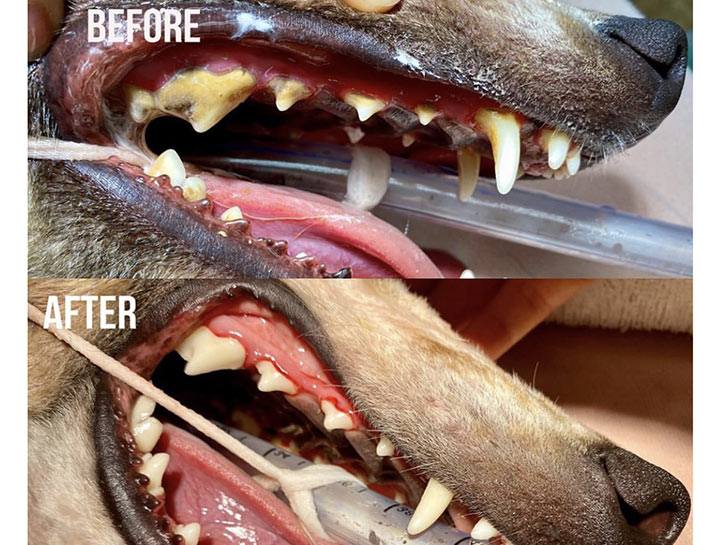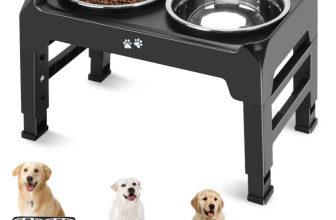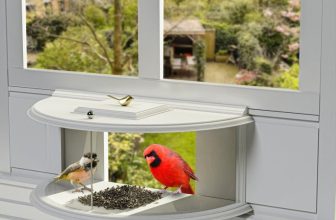Dog Dental Care: Tips for a Healthy Canine Smile

Your dog’s smile is more than just adorable; it’s a reflection of their overall health. Just like you, your furry friend needs proper dental care to keep their teeth and gums in tip-top shape.
Neglecting your dog’s dental hygiene can lead to serious health issues, from bad breath to painful infections. But don’t worry! This guide will arm you with simple and effective tips to ensure your dog’s mouth stays healthy and happy. By the end, you’ll be ready to take action and make dog dental care a regular part of your routine.
Your pup deserves the best—let’s make sure their smile shines bright!

Importance Of Dental Health In Dogs
Dental health is very important for dogs. Just like humans, dogs need clean teeth. Bad dental health can cause serious problems.
Gum disease can lead to pain and infection. This can make it hard for dogs to eat. Regular dental care helps keep their teeth healthy.
Brushing your dog’s teeth is essential. Use toothpaste made for dogs. Chew toys can also help clean their teeth.
Take your dog to the vet for check-ups. Vets can spot dental issues early. Healthy teeth mean a happy dog.
Common Dental Problems In Dogs
Plaque and tartar buildup are common in dogs. They can cause dental issues. Plaque is a soft film of bacteria. Tartar is hardened plaque. Regular brushing helps prevent this.
Gum disease occurs when plaque and tartar irritate the gums. Red, swollen gums can appear. This can lead to pain and tooth loss. Regular vet visits can help spot this early.
Tooth decay happens when bacteria eat away at teeth. It can cause pain and infection. Keeping teeth clean helps prevent decay.
Bad breath is often a sign of dental problems. It can be caused by plaque or gum disease. Regular dental care can improve your dog’s breath.
Signs Of Dental Issues In Dogs
Many dogs show clear signs of dental problems. Look for bad breath. This often means there is plaque or tartar. Red or swollen gums is another sign. Healthy gums should be pink and firm.
Watch for difficulty chewing food. If a dog avoids hard treats, it may hurt to chew. Excessive drooling can also be a warning sign. Dogs may drool more when in pain.
Notice if your dog paw at their mouth. This behavior often means discomfort. Keep an eye out for changes in eating habits. A dog that eats less may have dental pain.
Check for loose teeth or any missing teeth. This can indicate serious dental issues. Regular checks can help catch these problems early.
Daily Care For A Healthy Smile
Brushing your dog’s teeth is very important. Use a soft toothbrush made for dogs. Choose a toothpaste that is safe for them. Never use human toothpaste. Brush their teeth at least two to three times a week.
Choosing the right toothpaste is key. Look for flavors your dog likes. Chicken or peanut butter are popular. Check for products with the Veterinary Oral Health Council (VOHC) seal. This means they are effective.
Dental chews and toys can help too. They promote healthy teeth and gums. Look for chews that are vet-approved. These can reduce plaque and tartar build-up. Playing with dental toys can also keep your dog busy.
Professional Dental Cleaning
Professional dental cleaning for dogs is important. It helps keep their teeth and gums healthy. Scheduling this cleaning is essential for your dog’s well-being.
Seek veterinary help if you notice bad breath. Signs like swollen gums or bleeding also require attention. Dogs may have trouble eating or chewing. This can mean dental issues.
During a dental cleaning, your dog will receive anesthesia. This keeps them calm and still. The vet will check for problems first. Then, they will clean the teeth and gums carefully.
After the cleaning, your dog may feel sleepy. Monitor them closely for any unusual signs. Regular cleanings can help prevent serious dental problems.

Diet And Dental Health
Healthy teeth need the right food. Some foods help keep your dog’s teeth clean. Crunchy vegetables like carrots and apples are good. They help scrub teeth while chewing.
Some dry dog foods also support dental health. Look for brands that focus on dental care. They may help reduce tartar buildup.
Avoid giving your dog sugary treats. These can harm their teeth. Some human snacks are not safe for dogs. Chocolate and candy are examples.
Always check the ingredients. Choose treats that are low in sugar and fat. Simple is better for your dog’s teeth.
Preventing Dental Problems Early
Starting dental care early is very important. Puppies can get dental problems too. Their teeth grow fast and need care. Regular dental checkups help keep their teeth healthy.
Brush your puppy’s teeth often. Use a toothbrush made for dogs. Special dog toothpaste is safe and tasty. Start slowly so your puppy gets used to it.
Provide chew toys to clean their teeth. Chewing helps remove plaque. Healthy treats also support good dental health.
Watch for signs of dental issues. Bad breath, red gums, or loose teeth need a vet’s visit. Keeping your puppy’s teeth clean is key to their health.
Natural Remedies For Canine Dental Care
Keeping your dog’s teeth healthy is important. Natural remedies can help. Use coconut oil for brushing. It fights bacteria and freshens breath.
Carrots are great for dogs. Chewing them can help clean teeth. Apple slices are tasty and safe. They also help reduce plaque.
Pumpkin puree can support dental health. It is high in fiber and good for digestion. Add it to their meals for extra benefits.
Some herbs are helpful too. Parsley freshens breath. Mint can also reduce bad odor. Try these simple options for better dental care.
Benefits Of Good Oral Hygiene
Good oral hygiene for dogs has many benefits. It helps keep their teeth and gums healthy. Regular brushing can stop bad breath. It also prevents tartar and plaque buildup. This can avoid painful infections later on.
Healthy teeth can lead to a happier dog. They can chew food better. Strong teeth help with overall health. A dog with good teeth is often more active. This means more fun for both of you.
Regular dental care can save money. Treating dental problems can be very expensive. Keeping up with dental care now can prevent larger costs later.

Frequently Asked Questions
What Are The Benefits Of Dog Dental Care?
Dog dental care prevents plaque buildup and gum disease. Healthy teeth and gums lead to better overall health. Regular dental care can also reduce bad breath and discomfort. Investing in your dog’s dental hygiene means a happier, healthier pet. It can also save on veterinary costs in the long run.
How Often Should I Brush My Dog’s Teeth?
Ideally, you should brush your dog’s teeth daily. However, brushing at least two to three times a week is beneficial. Regular brushing helps to remove plaque and prevent tartar buildup. Establishing a routine early on makes it easier for your dog to accept this practice.
What Dental Products Are Safe For Dogs?
Use dog-specific toothpaste and brushes for dental care. Human toothpaste can be toxic to dogs and should be avoided. Look for dental chews or treats approved by veterinarians. Additionally, consider dental water additives to help maintain oral hygiene. Always consult with your vet for recommendations.
Can Dental Issues Affect My Dog’s Overall Health?
Yes, dental issues can lead to serious health problems. Bacteria from gum disease can enter the bloodstream, affecting organs. This can result in conditions like heart disease and kidney issues. Regular dental care helps prevent these complications and supports your dog’s overall health.
Conclusion
Caring for your dog’s teeth is essential for their health. Regular brushing and dental treats can help. Schedule vet visits for professional cleanings. Watch for signs of dental problems, like bad breath. Healthy teeth lead to a happier dog. Make dental care a routine part of your pet’s life.
Simple steps today can prevent bigger issues later. Invest time in your dog’s dental health. A little effort goes a long way. Keep those tails wagging with a bright, healthy smile.







